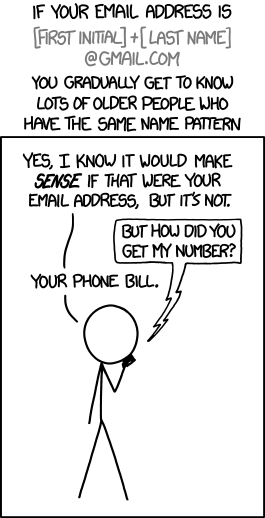Author Platform: Well That Was Embarrassing
20 November 2013
I’m not particularly easy to embarrass.
Sometimes, that’s actually a fault of mine: I can speak frankly about things that make other people blanch, and I’m not always sensitive to that. Sometimes I’m an asshole about it.
A couple of weekends ago, I went to the Algonkian Write to Market Conference. One of the exercises was intimidating but simple: four of you would get up in front of the room, each would deliver your pitch that you’d readied for an agent, and you would do a Q&A session about it.
Simple enough, right?
Except that I was pitching an erotic romance novel.
Probably anyone not already published in that genre would be nervous about it. Reasonable.
Then there was the Q&A part.
Question from the back: “What makes you think you can write a sex scene?”
This is an author platform question, essentially.
Fiction writers often don’t get grilled on them. I’ve never lived in a post-apocalyptic Palo Alto, never been on a space station, nor have I ever lived in a mythical world. But I’ve written about them.
Erotic romance novels are different than “hot” romance novels. Passionate Ink has category definitions, but I prefer my own:
Porn: about the reader’s journey, not the characters’. It has a happy ending — of sorts. Generally ends with a sex scene for obvious reasons.
Erotica: about one character’s sexual journey, and doesn’t require a happy ending. Classic example: the book version of Nine and a Half Weeks by Elizabeth McNeill, which does not have a happy ending in the romance sense, but does have a happy ending in other senses.
Erotic Romance: about characters in a relationship and their mutual sexual journey, requiring HEA (happily ever after) or HFN (happily for now). Removing or toning down the sex causes the story to fall apart. So the question posed of me was also asking: can you not only write a sex scene, but do you have enough skill to make that sex scene a necessary part of the plot?
Sexy Romance: about characters in a relationship who have explicit sex, requiring HEA or HFN. I do agree that the sex can be toned down without losing structure. Frankly, I don’t like these much and find myself skipping over the sex scenes in them.
Author platforms are critical in a lot of non-fiction: why would anyone want to read your cookbook? What authority do you have to write a self-help book? A travel guide? A medical reference?
But there are so many things saying how essential it is for an author–any author–to have a platform. I have a pent-up rant coming about this, so we’ll just table that for now. Let’s just say that even Forbes has gotten into the buzz.
For a fiction writer, that platform can be as simple as: be yourself, just a bit more out there.
There I was with a question–and any number of ways to answer it, and lots of pleasant memories from my callow youth volunteering their services. Oh, black sand beaches of Martinique…. I digress.
This is publishing, and I happened to have a track record, which I’ve written about before.
So I said, “Well, I’ve sold twelve porn novels for money, and I made more writing them than I did programming during that period.”
Which is true.
I’m not sure what compelled me to add that second part, though.
I’ve generally said it was “half” my income, but the truth is it was a tidge over fifty percent, partly because software engineering salaries in South Florida at the time were reprehensible, and partly because I had writing deadlines and checks that came in like clockwork.
It’s always been embarrassing to me: not that I wrote porn for money. More that I took money for writing books I wouldn’t read for free. It was hard work, and not work I’m proud of, but it did teach me how to approach writing seriously even if the subject is generally not regarded seriously. When I went on to write and sell four computer books, it was incredibly useful experience. As awful as I think the porn books were, I’m pretty sure none of them are as bad as the examples in this (seriously NSFW) blog of sex scene WTFery.
The question from the back changed my perception of my prior work. Suddenly, it became relevant. Instead of writing in another field, it was at least arguably relevant to something I’m doing in the present. For the first time, I felt like I was at peace with my time in literary brothels.
The other writers applauded, and not just the polite sort of applause. It was a difficult and pointed question to get through, and I’m sure they were all very, very glad it wasn’t a question they had to answer.
I came home with a 2nd place synopsis/opening contest win (and accompanying check), and I didn’t even get through my newly-revised pitch before the agent I stood in front of requested a full.
Go, me!
 ]
As someone whose primary email address is the same as my own domain, I’m less prone to incidents of “Reverse Identity Theft” than the average person.
]
As someone whose primary email address is the same as my own domain, I’m less prone to incidents of “Reverse Identity Theft” than the average person.